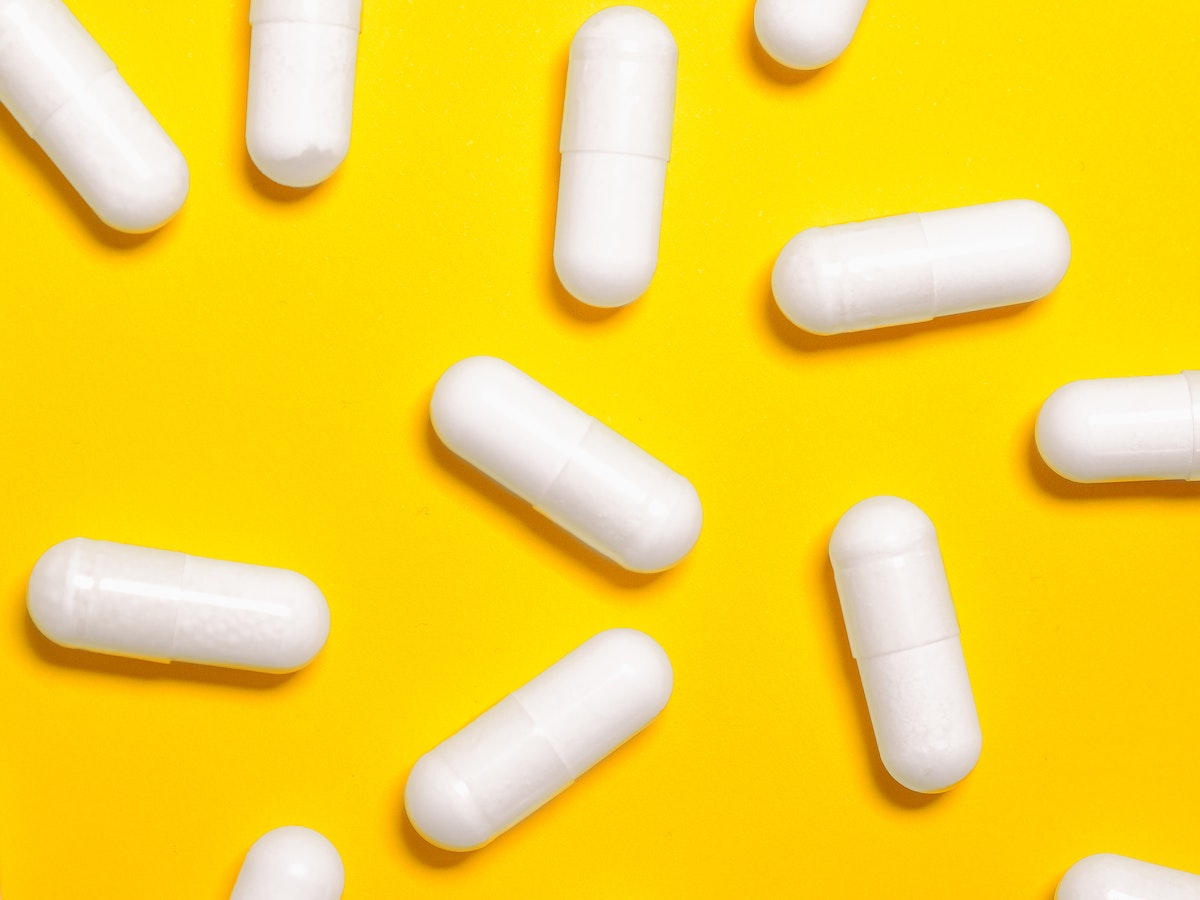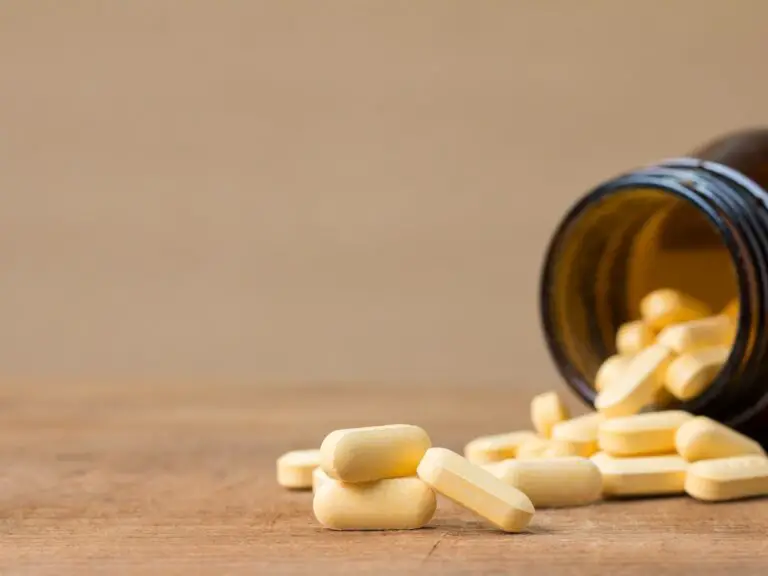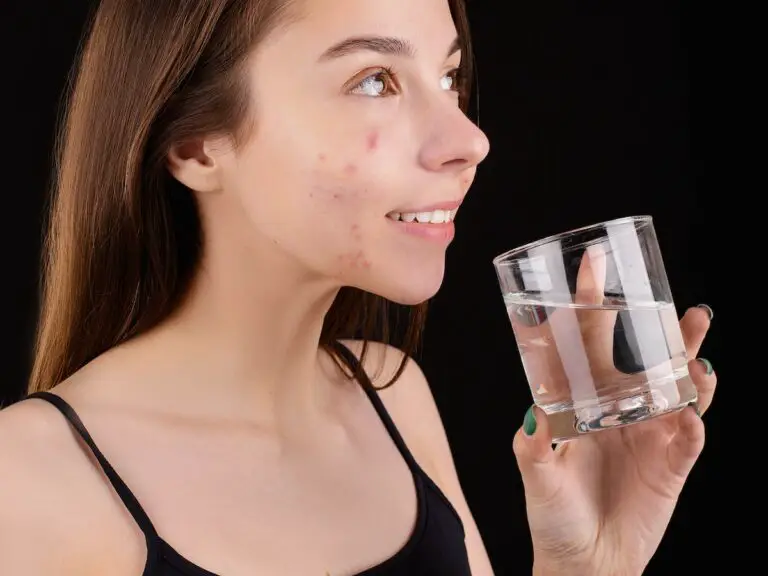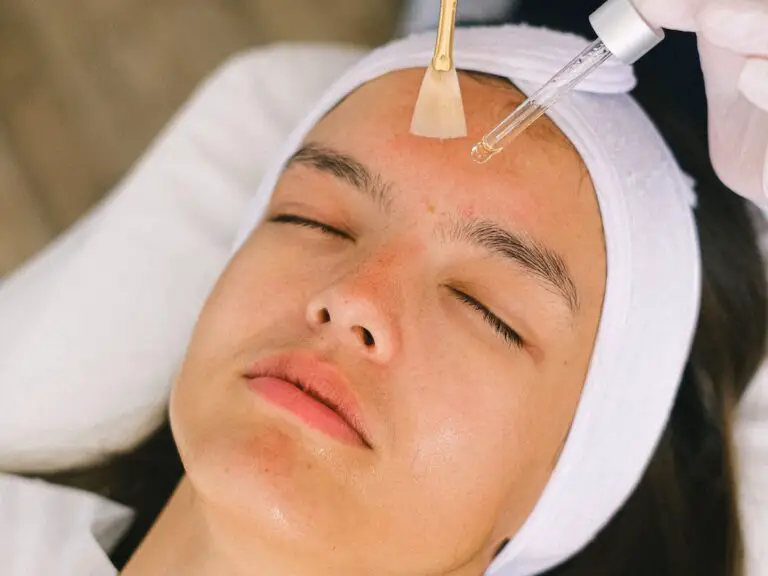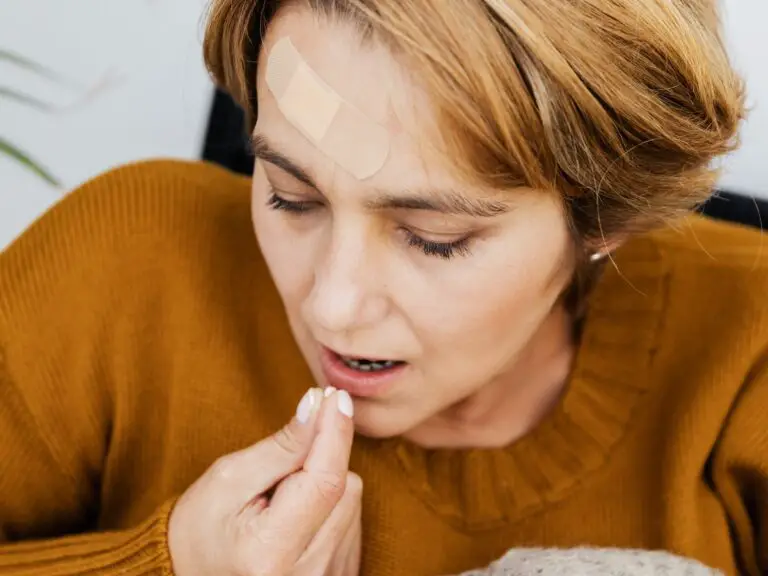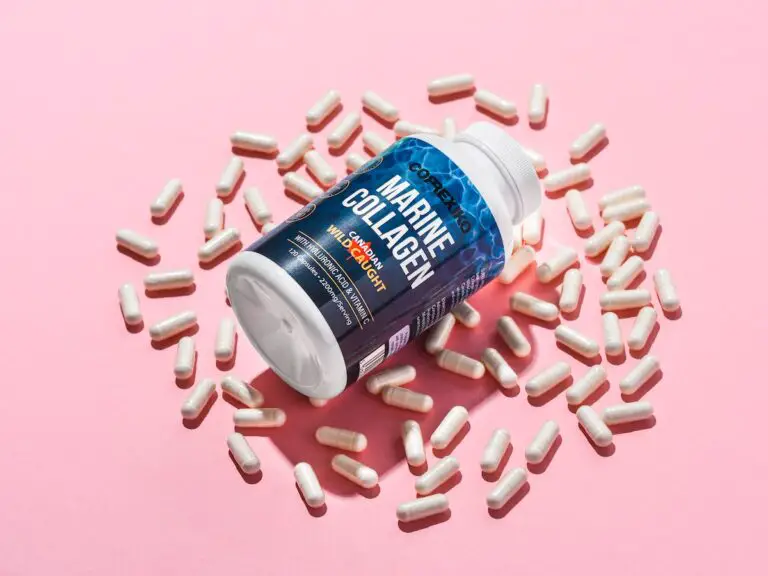Can Prozac Cause Acne Breakouts? (Eye-Opening Insights)
Are you among the millions who have taken Prozac to treat their sadness or anxiety? If so, you may have noticed a side effect you didn’t expect: pimples.
Prozac is well-known for how well it helps people with mental health problems, but it’s also important to know how it might affect your skin.
In this piece, we’ll look into the question on the minds of many Prozac users: Does Prozac cause acne?
We will look into the science behind this behavior and try to figure out how the medication might cause acne. We’ll also give you tips and tricks to help you deal with this side effect, so you can keep getting the benefits of Prozac while keeping your skin clear and healthy. Come with us as we find out the truth about Prozac and how it affects your skin.
Table of Contents
Common Side Effects of Prozac
Prozac, also called fluoxetine, is a common drug for treating sadness, anxiety, and other mental health problems. It has various possible side effects, just like any other medicine. Some side effects are normal and not too bad, but others can worsen. Some people who take Prozac have said it makes them break out in acne. It’s important to remember that not everyone who takes Prozac will have this side effect.
Acne breaks out when pimples, blackheads, and whiteheads appear on the face. They happen when oil, dead skin cells, and germs get stuck in the hair follicles. Acne can be frustrating and make people feel bad about themselves. The idea that a drug like Prozac could cause or make acne worse is scary.
So, let’s look more closely at the connection between Prozac and acne to see if there is a real link or if it’s just a chance.
The Link between Prozac and Acne Breakouts
Case studies and personal reports have shown that there may be a link between taking Prozac and getting acne over the years. But it’s important to be careful when reading these stories because they don’t prove that one thing caused the other. The connection between Prozac and acne is not well understood, and there aren’t a lot of scientific studies looking into this link.
Prozac is in a group of drugs called selective serotonin reuptake inhibitors (SSRIs), which are important to know about. These medicines make the brain more serotonin, making you feel better and lessening the effects of sadness and anxiety. Even though Prozac works mostly in the brain, it may also affect other body parts, such as the skin.
To learn more about the possible link between Prozac and acne, we need to look at the studies and research that have been done on this subject. Even though there isn’t much research on Prozac and acne, some studies have looked at the link between SSRIs and skin problems in general.
Let’s dive into the existing literature to illuminate this matter.
Studies and Research on Prozac and Acne
The influence of selective serotonin reuptake inhibitors (SSRIs) on the skin was the focus of research recently published in the Journal of Clinical Psychopharmacology. When participating in the trial, a select group of patients reported experiencing skin outbreaks similar to acne when taking SSRIs such as Prozac.
On the other hand, it is essential to point out that the research did not find a direct causal connection between taking Prozac and experiencing increased acne outbreaks. It is necessary to do additional studies to establish the precise pathways via which SSRIs may influence the development of acne.
Understanding How Prozac may Contribute to Acne
A few hypotheses have been put out regarding how exactly Prozac may be responsible for acne outbreaks, despite the fact that the precise processes responsible for this are not entirely understood.
A possible link between the use of Prozac and acne is that the medication may cause changes in the body’s hormone levels, making acne more likely. Acne is thought to be caused in part by hormonal imbalances, and there is evidence that certain drugs might upset the body’s natural hormone balance and contribute to the development of acne.
There is also the possibility that the antidepressant drug Prozac may interfere with the production of sebum. This oily material keeps the skin lubricated. An overproduction of sebum can contribute to the clogging of pores, leading to the development of acne. Prozac could likely disrupt the usual regulation of sebum production, increasing the risk of acne breakouts.
It is essential to remember that the hypotheses mentioned above are purely hypothetical and call for additional investigation to prove their correctness. Investigations into the precise processes through which Prozac may contribute to acne breakouts are still ongoing. While you continue to take Prozac, we will go on to the following section, where we will go over some useful advice and techniques that can assist you in better managing your acne.
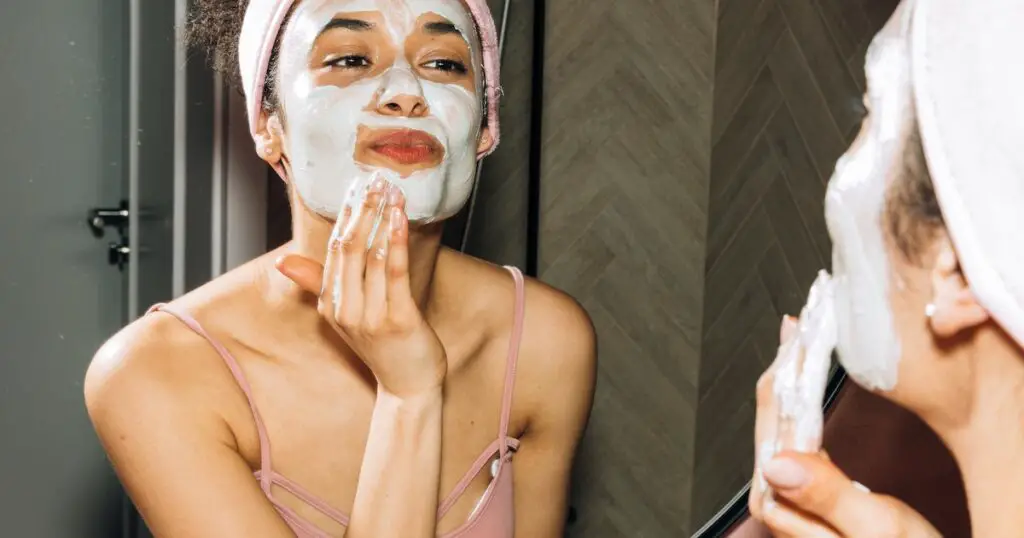
Managing Acne while Taking Prozac
If you get acne while taking Prozac, there are a few things you can do to deal with this side effect and keep your face clear and healthy. Here are some useful tips and ideas to think about:
Skincare routine: Set up a regular skincare practice that includes gently washing, exfoliating, and moisturizing your skin. Don’t use harsh or abrasive products on your face because they can irritate and worsen acne.
Avoid excessive touching: If you touch your face too much, germs and oil from your hands can get transferred to your skin, making acne worse.
Diet and hydration: Eat a healthy diet and drink plenty of water. Eating a healthy diet with lots of fruits, vegetables, and whole grains can help your skin stay healthy. Getting enough water can also help keep your skin moist and give you a clear face.
Stress management: Find healthy ways to deal with stress since it can cause hormonal changes and worsen acne. Do things like yoga, meditation, or spending time in nature that help you relax and unwind.
Avoid excessive makeup: If you wear makeup, choose not comedogenic items because they are less likely to clog your pores. Stay away from heavy, oil-based makeup that could make pimples worse.
Remember to talk to a doctor or nurse before making big changes to your skincare routine or starting new treatments. They can give you advice and help tailored to your specific case.
Tips for Preventing and Treating Acne while on Prozac
Even though it’s important to deal with acne while taking Prozac, it’s also important to focus on avoiding and treating acne well. Here are some more things to think about:
- Keep your skin clean: Use a gentle cleanser to wash your face twice daily to eliminate oil, dirt, and germs. Don’t scrub your face too hard because it can irritate and worsen acne.
- Exfoliate regularly: This can help remove dead skin cells and open up pores. But be careful not to scrub too much because that can strip the skin of its natural oils and cause it to dry and itch.
- Use topical treatments: Over-the-counter acne treatments with ingredients like benzoyl peroxide or salicylic acid can help lessen acne breakouts. Follow the directions for these treatments and give them time to work, as you may not immediately see the effects.
- Consider prescription treatments: See a dermatologist if over-the-counter treatments aren’t working. He or she can give you stronger medicines or treatments you put on your skin that are made just for you.
- Maintain a healthy lifestyle: Having a healthy way of life can help your skin in general. Get regular exercise, eat a healthy diet, and get enough sleep to keep your face clear and healthy.
Alternative Medications for Individuals Prone to Acne
Suppose you feel that your acne outbreaks substantially influence your quality of life while using Prozac. In that case, discussing the possibility of switching to a different drug with your primary care physician or another qualified medical practitioner may be worthwhile. Various medications can produce various effects on the skin; conversely, a medical practitioner can assist you in determining which course of action is most appropriate given the particular circumstances of your case. Before making any changes to your drug regimen, it is imperative to carefully analyze each option’s potential upsides and downsides.
Consulting with a Healthcare Professional
You must seek the advice of a medical practitioner if you are using Prozac and have experienced acne outbreaks or have concerns about the possibility of acne being triggered by the medication. They can offer individualized recommendations and instructions based on the specifics of your situation. They may also be able to propose alternate therapies or skincare routines to assist in managing acne breakouts so that the patient can continue to reap the therapeutic benefits of Prozac.
Final Thoughts
Even though there isn’t a lot of scientific research on the link between Prozac and acne, there are some stories and studies that suggest there might be one. Remember that not everyone who takes Prozac will get acne, and the severity of this side effect can range. Suppose you are worried about getting acne while taking Prozac. In that case, you should talk to a doctor or nurse who can give you personalized help and direction.
To prevent acne while taking Prozac, you should have regular skin care practices, avoid touching your face too much, eat well and drink enough water, and find healthy ways to deal with stress. Acne can also be prevented and treated by using the right skin care products and getting help from a professional.
Ultimately, whether to keep taking Prozac or look for other options should be made with the help of a medical professional who can look at the total benefits and risks. Remember that you can have clear, healthy skin, and with the right method, you can deal with acne while keeping your mental health in good shape.
FAQs
To get rid of acne caused by antidepressants like Prozac, you should talk to a doctor who can look at your particular case. They may suggest changing the dose of the antidepressant or moving to a different one. A consistent skincare practice that includes gentle cleansing, products that don’t clog pores, and regular exfoliation can also help control acne. To treat acne caused by antidepressants safely and successfully, it’s important to follow the advice of a medical professional.
Acne can sometimes happen as a side effect of the depression drug Prozac. Some people think hormone changes, especially a rise in cortisol levels, may cause acne. But people react differently to different drugs, and not everyone who takes Prozac will get acne. Suppose you’re worried about acne as a side effect of Prozac. In that case, it’s best to talk to a doctor who can give you personalized advice and help you think about possible treatments.
Some SSRIs, like Prozac, can change hormone levels, leading to chemical imbalances that can worsen acne. But the effects on hormones and acne can differ from person to person. It’s important to remember that not everyone who takes Prozac or other SSRIs will get acne. If you’re worried about how Prozac might affect your hormones or acne, it’s best to talk to a doctor who can give you personalized advice and help you choose the best treatment choices.
Fluoxetine, also called Prozac, mostly changes how much serotonin is in the brain. As a selective serotonin reuptake inhibitor (SSRI), it changes how much serotonin, a chemical that helps control mood, is available in the brain. Even though serotonin is the main hormone fluoxetine affects, it can also have a secondary effect on cortisol and prolactin. But different people may have different effects on these chemicals.
Fluoxetine, or Prozac, does not usually cause the skin to get darker. But everyone reacts differently to drugs, and some people who take fluoxetine may notice that their skin color changes. If you use this medicine and notice any changes or problems with your face, it’s best to talk to a doctor or nurse to get more information and advice. They can give you advice that is tailored to your case.
Disclaimer: This article is for educational purposes only, and does not substitute any medical advice. Always consult a qualified healthcare professional for personalized advice before trying new treatments or medications.

General Physician
Senior Medical Writer
